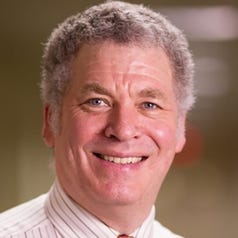
Jeremy Berg
Jeremy M. Berg, PhD, is associate senior vice chancellor for science strategy and planning, health sciences, and professor of computational and systems biology in Pitt’s School of Medicine. Dr. Berg works to advance the University’s position as a biomedical research leader. In July 2016, he was named editor-in-chief of Science magazine and the Science family of journals.
Dr. Berg was the founding director of Pitt’s Institute for Precision Medicine, which he oversaw from 2013–16. Launched by Pitt and UPMC, the institute applies genetics, genomics, and research in other areas to advance evidence-based medicine and treatments tailored to individual patients, often through genetics and DNA analysis.
Prior to his appointment at Pitt in 2011, Dr. Berg served as director of the National Institute of General Medical Sciences (NIGMS), one of the National Institutes of Health, where he oversaw a $2 billion budget supporting basic research across a wide range of areas, including cell biology, genetics, biological chemistry, bioinformatics, anesthesiology, wound healing, and critical care medicine. Before serving as NIGMS director, Dr. Berg directed the Institute for Basic Biomedical Sciences at Johns Hopkins University School of Medicine, where he was professor and director of the Department of Biophysics and Biophysical Chemistry.
Dr. Berg’s research into the structures and functions of biological molecules has elucidated how zinc-containing proteins bind to DNA or RNA and regulate gene activity. As a bioinorganic chemist, Dr. Berg investigates biomolecule interaction inside cells using experimental and computational methods.
Dr. Berg’s awards and honors include the American Chemical Society’s Public Service Award, the Distinguished Service Award from the Biophysical Society, and election to the National Academy of Medicine. He is a fellow of the American Association for the Advancement of Science and past president of the American Society for Biochemistry and Molecular Biology. Dr. Berg earned his BS and MS in chemistry at Stanford University, received his PhD in chemistry from Harvard University, and was a postdoctoral fellow in biophysics at Johns Hopkins.
